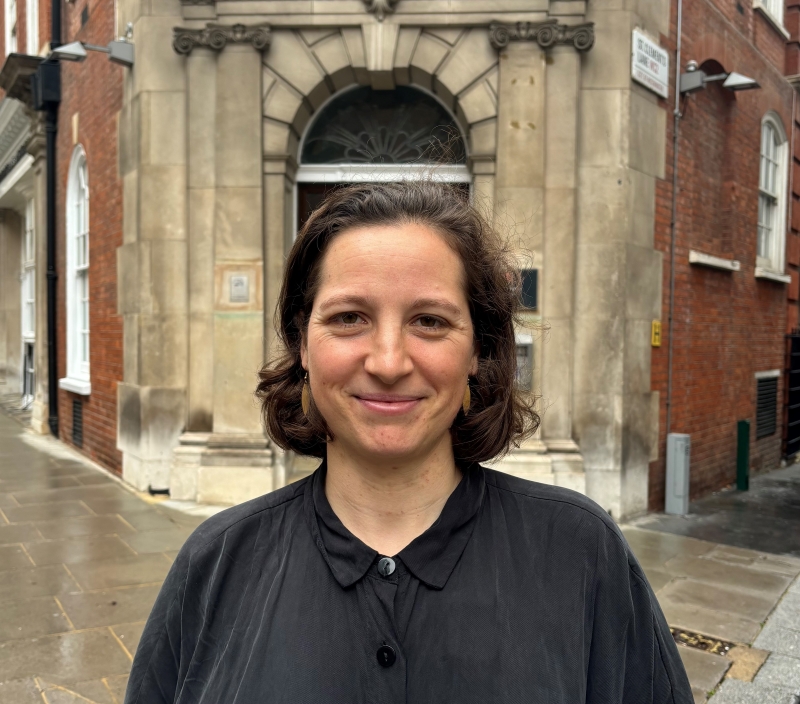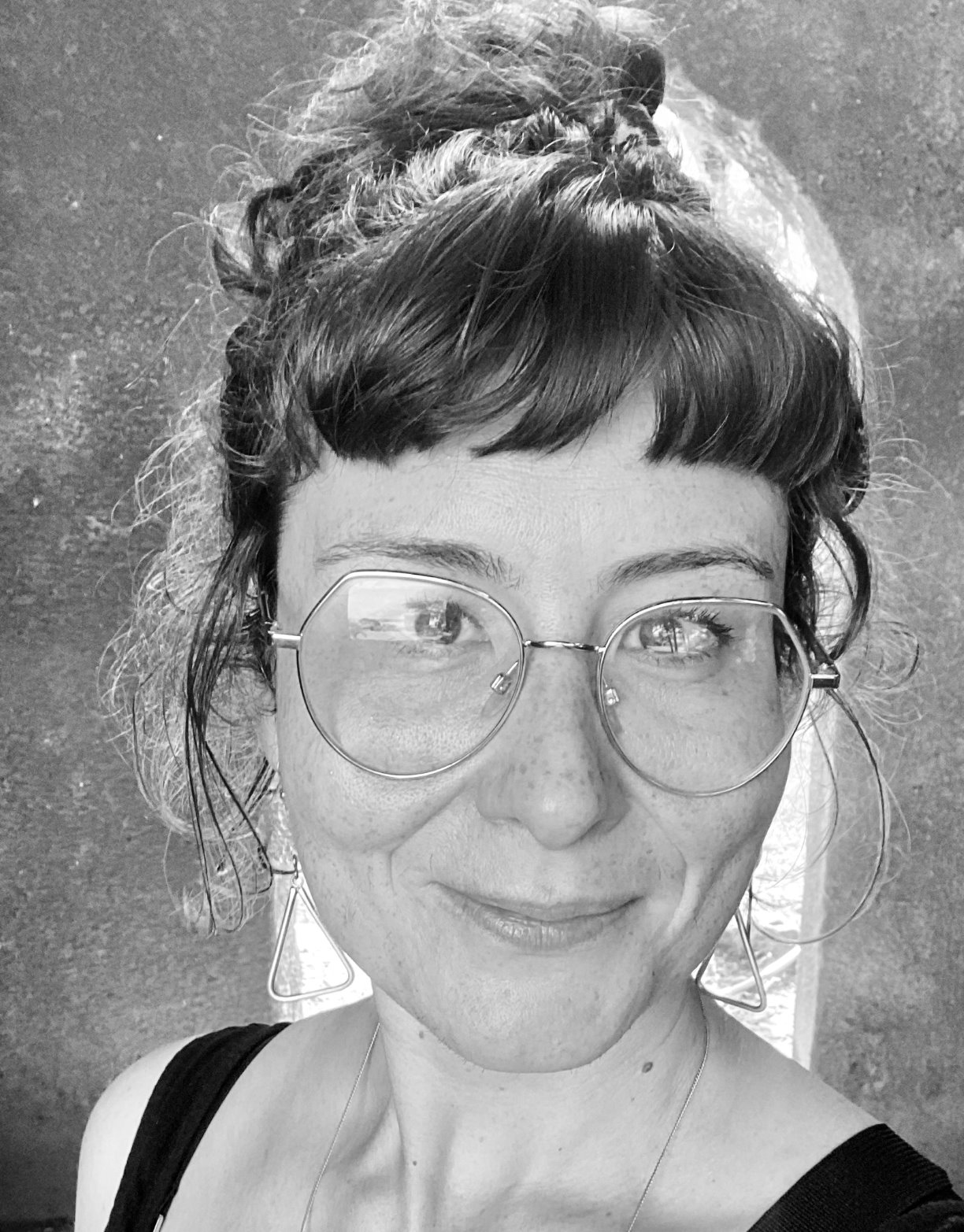Sophie Legros - Department of Methodology
Project title: Changes, Continuities, and Gender Norms: Work and Care in Medellín’s Urban Peripheries
Bio: Sophie is an ESRC Postdoctoral Fellow at the Department of Methodology, with a particular interest in gender norms change. She holds a PhD from the Department of International Development. She is also a Visiting Fellow at the Department of International Development and network member of the Gender Justice and Wellbeing Economy Programme at the International Inequalities Institute, LSE.
Summary of Project: Transforming the unjust gender norms that shape the division of paid and unpaid work in society is a key challenge in development policy and practice. This project investigates how gender norms evolve, why some resist change, and which methods effectively capture these dynamics. The research examines changes and continuities in the norms governing the household division of labour in Medellín, Colombia, where an increasing number of women have joined the labour force, yet continue to take on a disproportionate share of unpaid work at home. It addresses often-overlooked gender dimensions of the “Medellín Model”, shedding light on the role of violence in shaping care norms and practices and highlighting community care processes essential to human security and resilience. Methodologically, the study employs a nested mixed-methods approach, tracing the same variables across three levels of analysis, to enable a critical assessment of what different methods reveal about persistence and change.
The ESRC fellowship aims to translate these findings into actionable recommendations for policymakers, development institutions, and civil society organisations. It will produce a portfolio of policy and guidance materials, including a policy brief and methodological tip sheet, that offer practical learnings for development programmes and for designing new indicators to capture the multifaceted nature of social norms change. Dissemination activities will mobilise various actors, including academics, researchers in development institutions, NGOs and activists.
Further information/how to contact:
Email address: s.c.legros@lse.ac.uk
Sophie Mylan - Department of International Development
Project Title: Epidemic emergencies: Re-thinking preparedness and response in humanitarian settings
Bio: Sophie has a combined clinical and academic career. She is a fully qualified GP, whilst her research is situated at the intersection of medical anthropology, public health and humanitarianism.
Project: Epidemics are on the rise, and there is a greater emphasis amongst politicians, policy-makers, researchers, and those working in national and international health organisations, that we need to know how to better prepare and respond to these types of emergencies. There is much still unknown, however, about how to best prepare and respond to epidemics. Epidemic preparedness and response are especially important in settings that are associated with an increased risk of infectious disease outbreaks. Humanitarian settings, such as refugee camps and settlements, are a prime example. This fellowship builds on ethnographic research that was conducted for Sophie’s PhD that specifically explored epidemic preparedness in a refugee settlement in northern Uganda during the COVID-19 pandemic. The research demonstrated how historical, spiritual, socio-economic and political dynamics were inextricable from the way in which epidemic preparedness was conceptualised, delivered and responded to. It showed how current mainstream frameworks for preparedness ignore important perspectives from refugees that could usefully inform a re-thinking of preparedness, while also obfuscating the everyday suffering of refugees, and the (geo)political dynamics that perpetuate it. This fellowship will provide an opportunity to share the findings of this research, with the refugees and humanitarian and government staff who informed the research in Uganda, but also to important wider networks of researchers and policy-makers globally.
Further Information and How to Contact:
Email address: s.mylan@lse.ac.uk
Sophie’s publications can be found at: https://www.researchgate.net/profile/Sophie-Mylan?ev=hdr_xprf
Tomas Walker-Borsa - Department of Media and Communications
Project title: Fiction, Friction, and the Phenomena of Fibre: Towards an Ethnography of Critical Digital Infrastructure
Bio: Tomas Walker-Borsa is a media ethnographer and documentary filmmaker with an interest in the material politics of internet infrastructures and the shifting ecologies of rural connectivity. He holds a Double BA in Political Studies and Psychology from the University of Saskatchewan, an MSc in Politics and Communication from LSE, and a DPhil from the Oxford Internet Institute. His doctoral dissertation, ‘Future Proof: the Meanings and Makings of The Fibre Project on Haida Gwaii’, received the Association of Internet Researchers’ (AoIR) 2025 Annual Dissertation Award. He is an adopted member of the Skidegate Gidins/Naa ‘Yuuwans Xaaydaga (Big House People) clan of the Haida Nation.
Summary of project: Across the globe, a vast network of fibre-optic cables forms the material substratum of the internet: from data centres to 5G networks, nearly all global internet traffic passes through this network of cables. Among the many forms such a network can take, the most coveted are ‘full fibre’ or Fibre-to-the-Premise (FTTP) networks, which offer unparalleled resiliency, latency, and capacity. Historically, the availability of such ‘future proof’ internet infrastructure was largely determined by geography, with urban areas enjoying far greater access than rural regions. In recent years, however, an ever-increasing share of rural and remote communities have turned the tide by successfully initiating their own state-of-the-art fibre networks.
Against this backdrop, this project will build on my doctoral research into the impacts and imaginaries associated with the successful deployment of a full-fibre network on the islands of Haida Gwaii, using a multi-modal ethnographic methodology to explore the ethnographic character of fibre in relation to the places in which it is physically located, the lives of those who use it, and the people who work to maintain it. Through a series of fieldwork excursions, the coordination of a multi-day convening with local partners on Haida Gwaii, and the development of a manuscript, this project will contribute to ongoing conversations around the politics of broadband ownership and the shifting realities of rural connectivity, and to critical and qualitative inquiries into the local legibilities of a globally emergent assemblage.
Further Information and How to Contact:
Email address: t.borsa@lse.ac.uk
Neil Warner - European Institute
Project Title: Towards “no alternative”: the rejection of proposals for the socialisation of investment in Western Europe, and the paths not taken before neoliberalism
Bio: Neil Warner is a political economist and historical sociologist with interests in labour movements, socialist and social democratic parties, the politics of the ‘long 1970s, and alternatives to capitalist control over workplaces and investment.
Summary of Project: Neil’s project casts a new light on the economic crises of the 1970s and early 1980s. These are widely seen as an international moment of transition to neoliberal policy regimes, which sought to accommodate the interests of capital in response to these crises. However, as Neil’s work emphasises, an alternative set of responses instead advocated the ‘socialisation of investment’, by expanding control over investment by the state and/or by workers. Through a comparative study of defeated socialisation proposals in the United Kingdom, France, and Sweden, Neil argues that these measures were defeated due to their weak resonance with the experiences of most workers and left politicians, in combination with their strong resonance with capital owners who mobilised against them. The defeat of these projects left governments increasingly dependent on new measures to accommodate privately-controlled capital in order to promote investment, supporting a sense that there was ‘no alternative’ to neoliberalism.
Further Information and How to Contact:
Email address: n.warner@lse.ac.uk